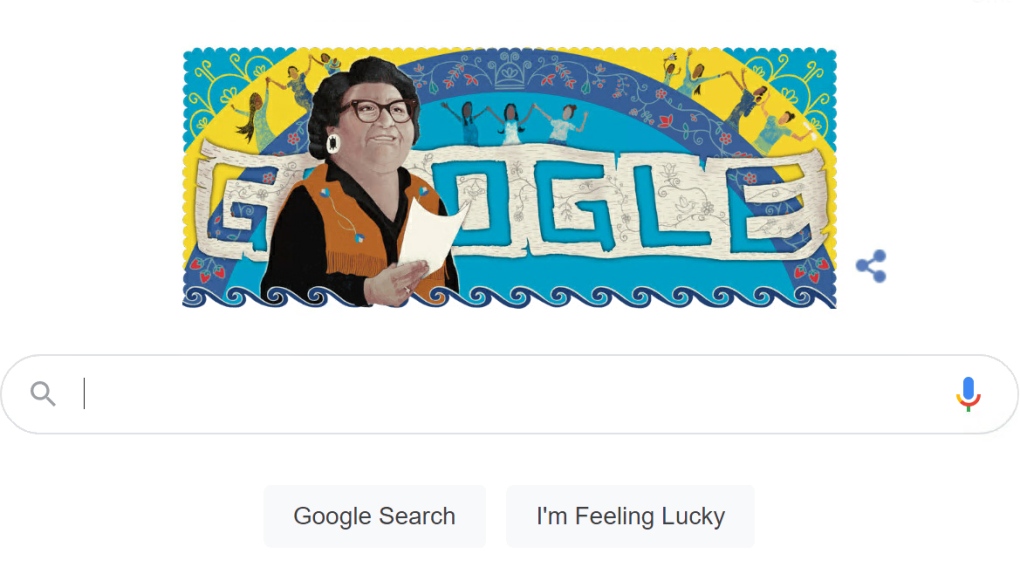TORONTO -
Mary Two-Axe Earley, an Indigenous human-rights activist and feminist who for decades fought against sex discrimination in Canada’s Indian Act of 1876, has been commemorated in a Google Doodle on the 36th anniversary of the landmark legislation she helped create.
Born in 1911 on the reserve of Kahnawake in Quebec, Two-Axe Earley advocated for change in the act after losing her legal Indian status as a result of marrying a non-status man. In 1967, she co-founded the Equal Rights for Indian Women organization, and on June 28, 1985, Bill C-31 received Royal assent, restoring status to women who had lost it through marriage.
Google Doodles are daily-changing images or animations on Google country homepages that honour notable historical figures, events, holidays and achievements. The doodle of Two-Axe Earley was designed by artist Star Horn, who like Two-Axe Earley is Mohawk and born in Kahnawake.
“My personal experience was that her story was not taught in school nor anywhere else. For me to have such a small part in helping bring her impactful story to the world, in a visual way, is an honour,” Horn said in a Q&A posted by Google.
Despite the passage of the C-31 amendment, elements of gender discrimination remained in the Indian Act as children of reinstated women were unable to pass on status to future generations until that issue was addressed with the passage Bill C-3 in 2019. Two-Axe Earley died in 1996 at the age of 84.
Horn said she hopes her doodle will lead to Two-Axe Earley’s name being associated with the amendment she and her allies fought for, and for people to know the effect her achievements had on non-Indigenous women and rights as well.
“I also want them to see her as the smart, sweet, strong, Kanienkehaka matriarch that she was,” said Horn. “I want the Kanienkehaka youth to learn about her, to take pride in her story, and to know that they too can make significant changes in the world, or their community, or even just for their own selves and family.”








































